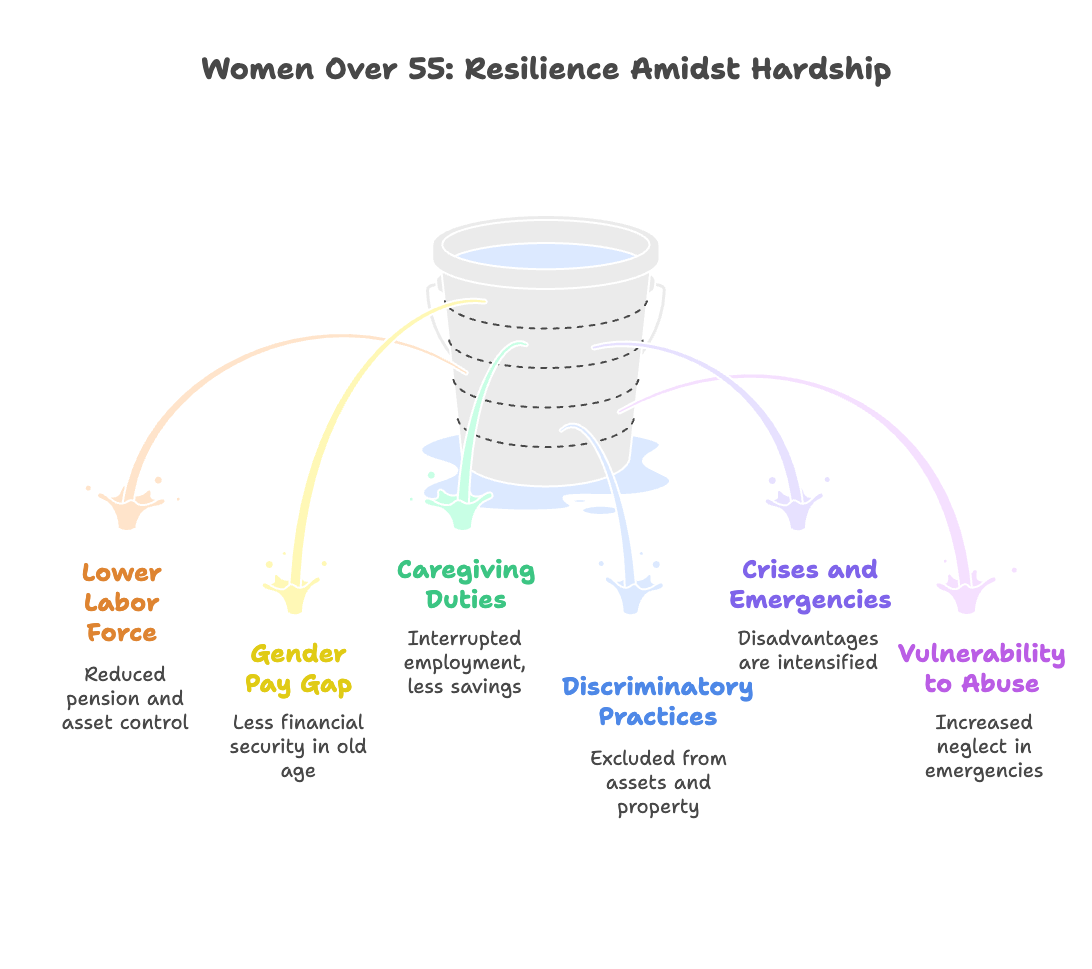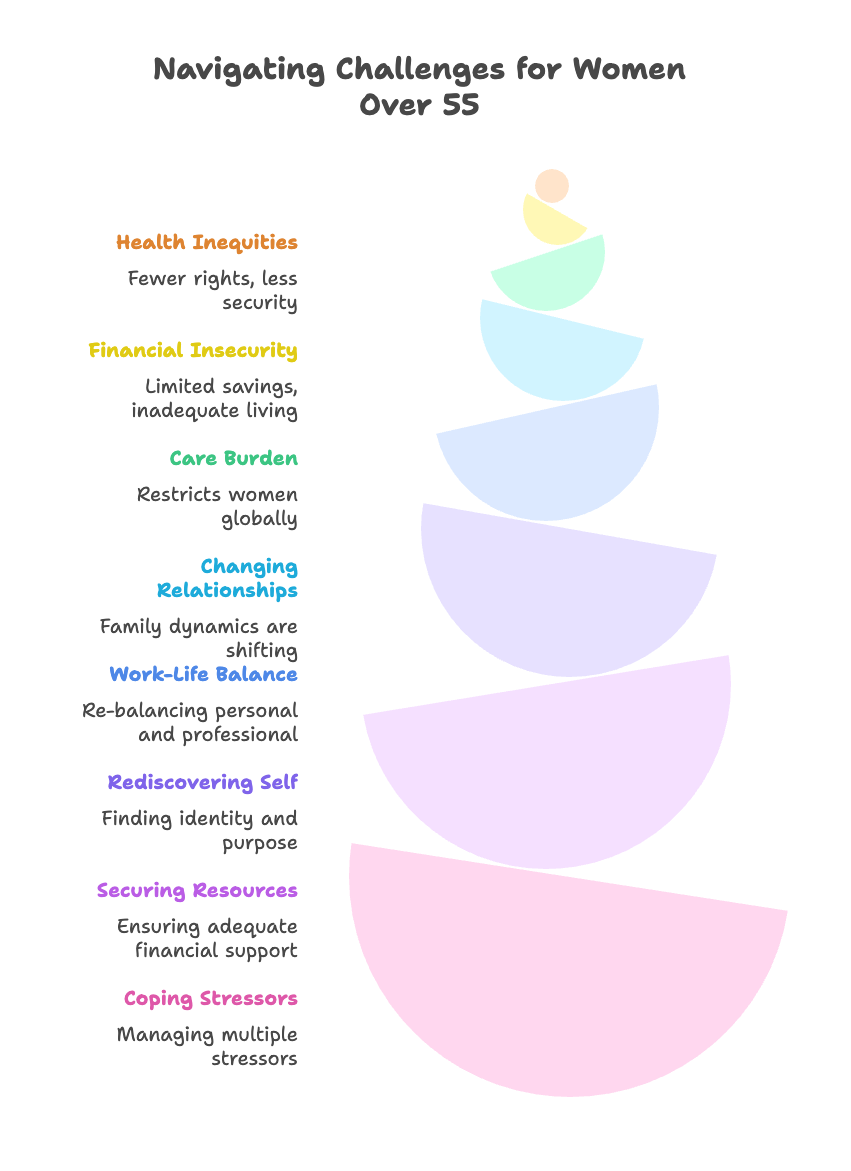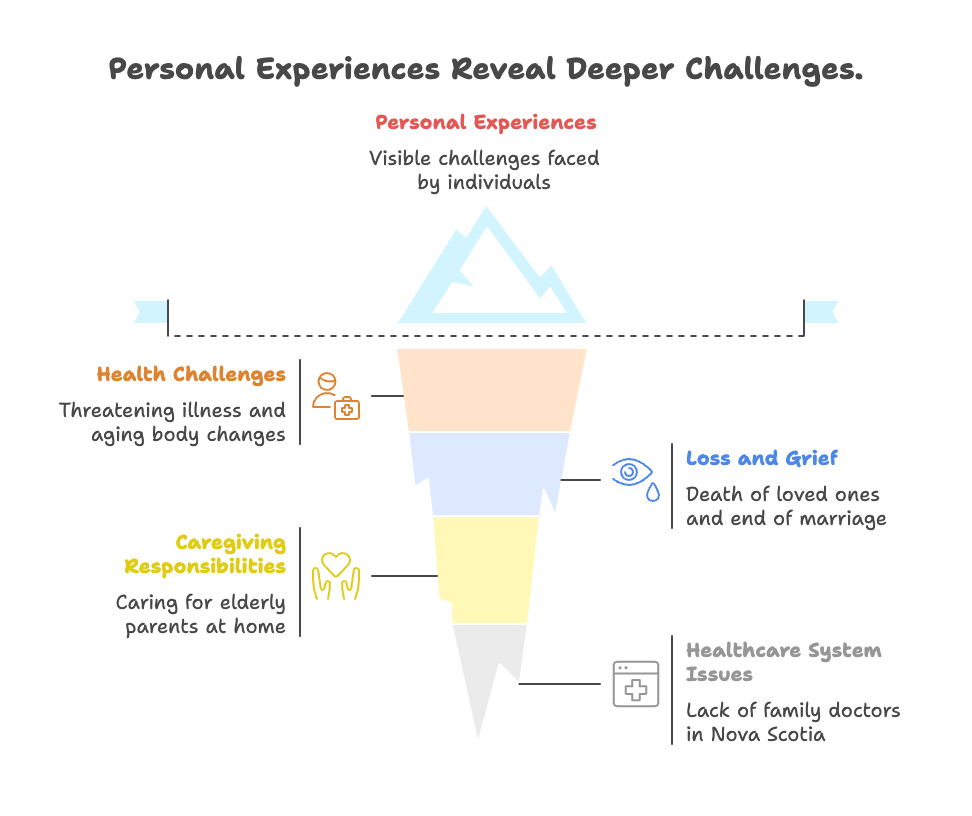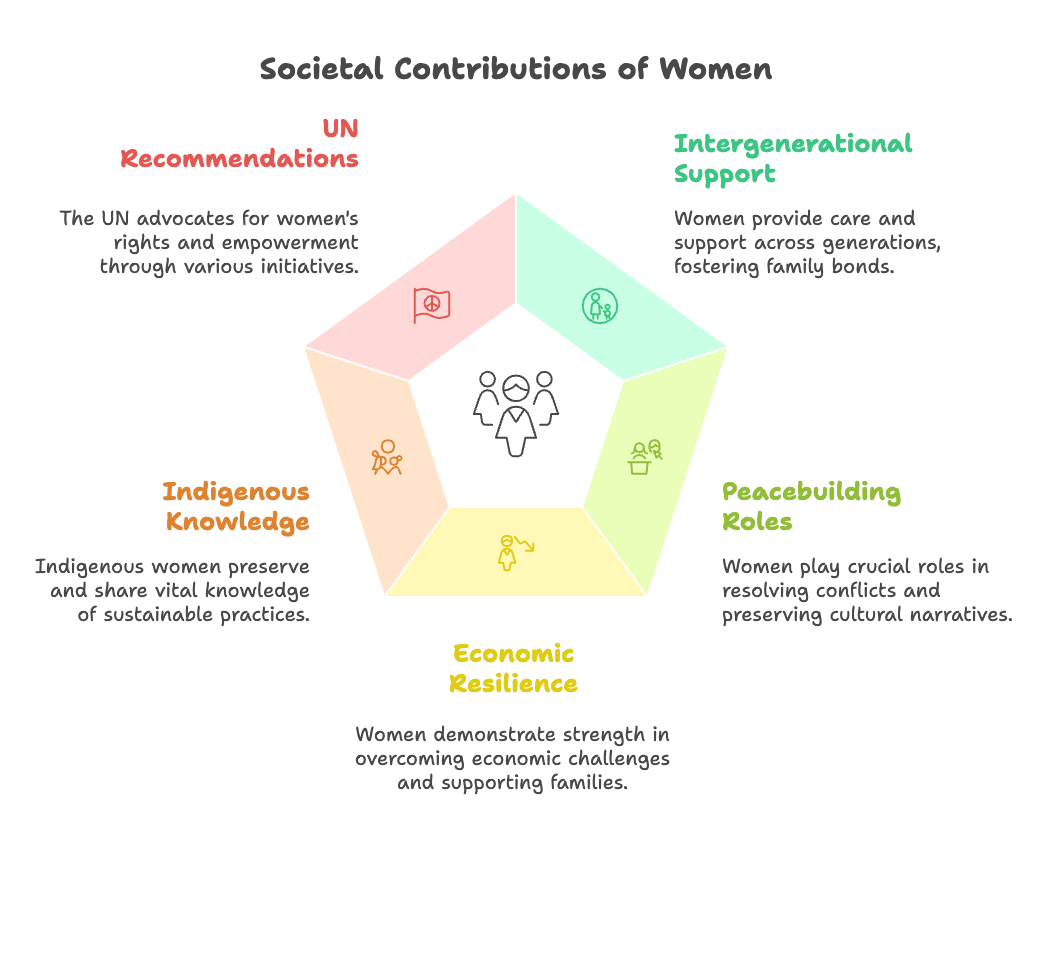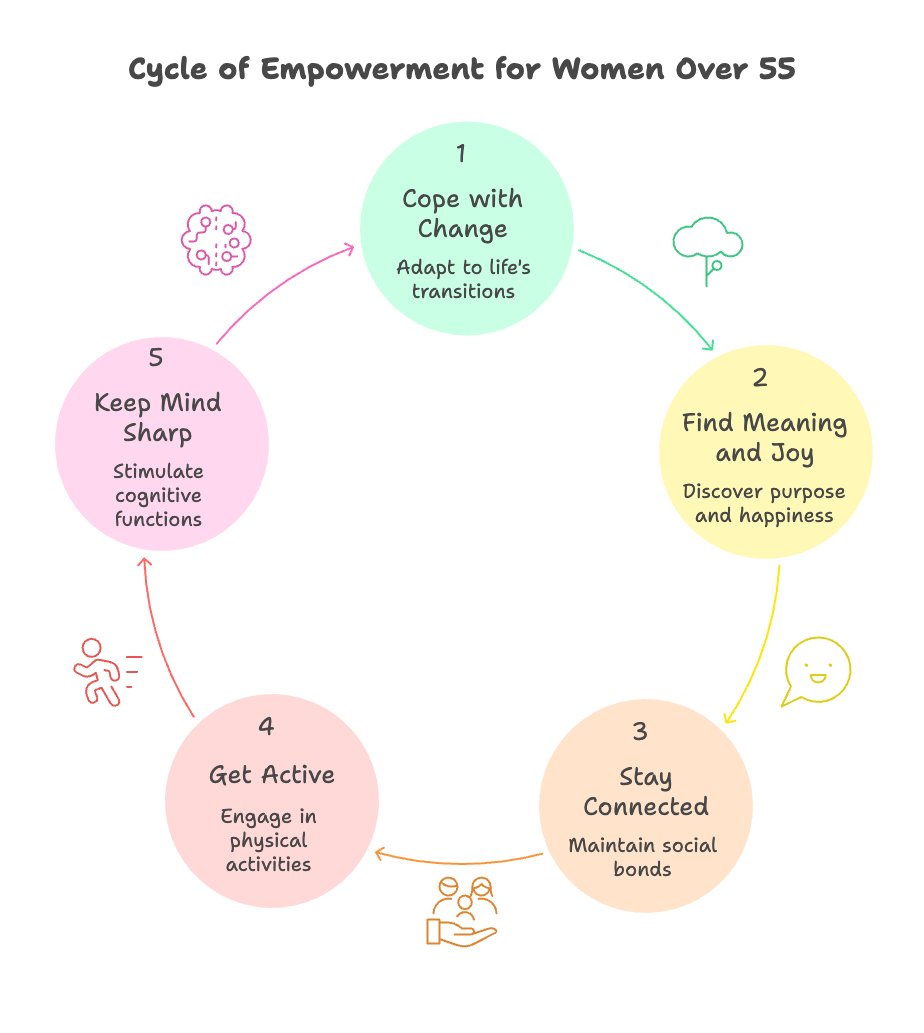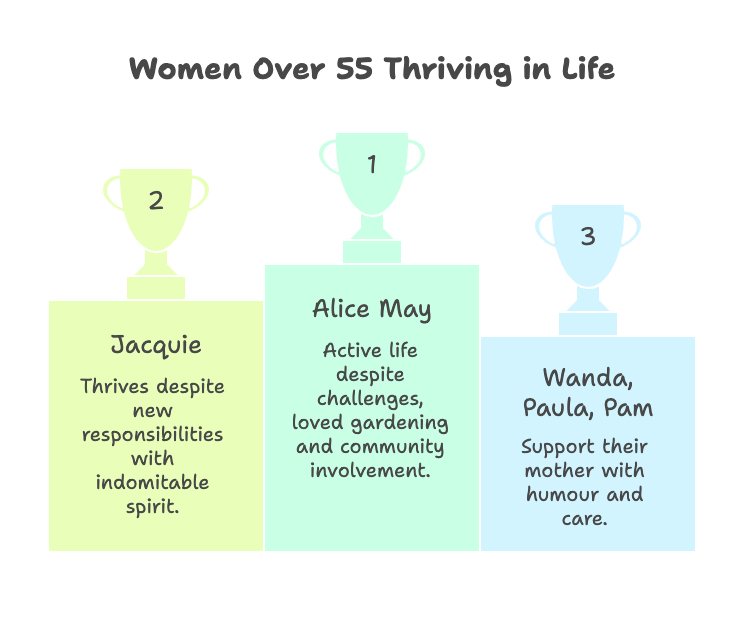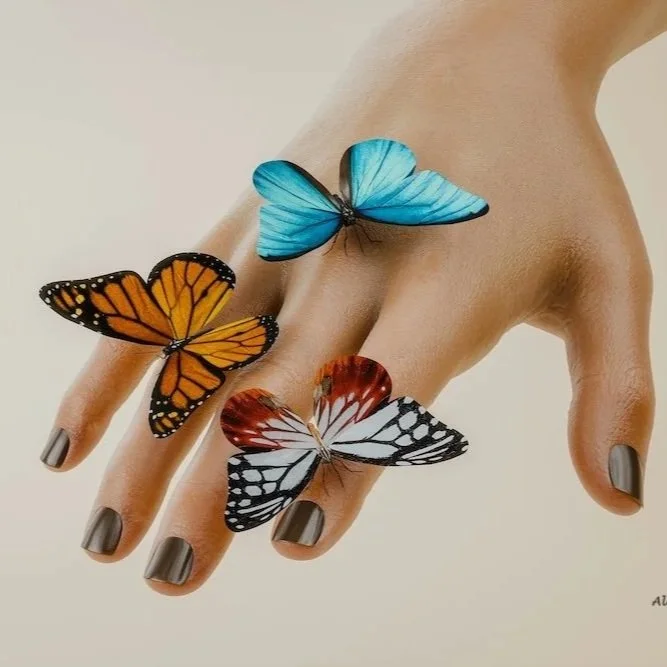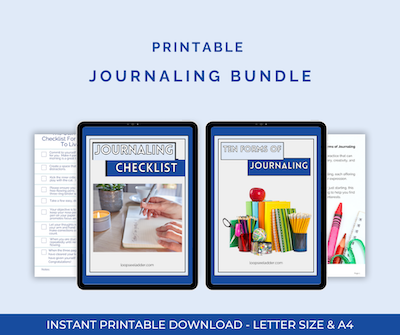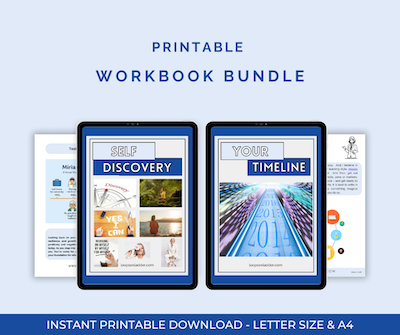Women Over 55 Meeting Challenges Head On and Thriving
Women over 55 meeting challenges head-on inspire us. They are strong.
Society needs to make changes so women's problems are alleviated and they can live their best lives with intention, passion, purpose and joy.
Summary: This post speaks directly to women aged 55 and beyond who are ready to face life’s changes and obstacles with courage, intention and resilience. It emphasizes that this chapter isn’t about retreat, but about showing up — using your lived experience, strength and wisdom to meet new obstacles and turn them into growth opportunities. You cover topics such as recognizing common midlife and later-life hurdles (health shifts, evolving roles, identity transitions, fear of relevance), leaning into your inner resources, building flexibility and support systems, and taking proactive steps rather than waiting for things to happen. The overarching message: your next chapter is your chance to stand firm, adapt and flourish by meeting challenges head-on.
The Wonder of Women Over 55 Meeting Challenges Head On - Preamble
I am amazed by women who have reached the age of fifty-five and beyond. Wouldn’t it be wonderful to interview all those women, hear their life stories, and allow them to describe their issues and how they handled them? We would feel in awe. And we would learn a great deal while feeling less alone. The stories of women meeting problems head-on are inspirational.
Because I live in Canada, a peaceful, prosperous country, I feel like I am in a cotton-batting bubble. But Canada is founded on immigration, and we welcome immigrants into our society. We can learn a great deal from the stories of our ancestors and our new neighbours.
On my mother’s side, my grandmother emigrated from Ireland with her ten siblings. Their first homes were tents. After that, they built houses nearby - in the same block, showing the resiliency that allowed them to thrive. It was a matriarchal family, and everyone contributed.
My father was born in Czechoslovakia. His father immigrated to Canada first, and my grandmother came later with my father and his older sister. My grandmother showed remarkable resilience as she struggled to adapt to a new country and language, and to manage periods of severe financial distress in her new country and household. Unfortunately, my grandfather was only sometimes successful in his businesses.
Globally, women have had incredible struggles and still do. We do not even know the depths of their hardships. The UN reported in its statement ahead of the International Day of Older Persons - UN expert praises older women’s resilience in the face of ongoing emergency challenges:
“The cumulative disadvantages of lower labour force participation, the gender pay gap, interrupted employment patterns due to caregiving, and higher prevalence of part-time and informal work mean that older women often receive lower or no pensions. Additionally, many older women are excluded from acquiring, accumulating and controlling assets and property over their life course, including due to discriminatory inheritance regimes and practices.
Such disadvantages are exacerbated in crises and emergencies, both due to climate change, conflict or the COVID-19 pandemic, with the multiple and intersecting forms of discrimination intensified during such situations. Older women who might be viewed as a burden become even more vulnerable to abuse and neglect in emergencies.”
How many of us - even those living in developed countries - have faced many of the same issues?
I am amazed by women who have reached fifty-five and beyond. Wouldn’t it be wonderful to interview all those women, hear their life stories, and allow them to describe their difficulties and how they handled them?
We would feel in awe. And we would learn so much while feeling less alone. The stories of women meeting hurdles head-on are inspirational.
Some Loops for Women Over 55
The Women’s UN Report Network published an article titled "Challenges Facing Older Women—The Feminization of Aging." It highlighted two statements.
“Many older women suffer significant health inequities, enjoy fewer human rights, and have less financial security, with fewer savings and assets to support an adequate standard of living in older age.”
“Gender, aging, and poverty are interrelated.”
“This 'care burden' is currently one of the most serious restrictions women face globally.”
The Women’s Midlife Health Journal reported on "The challenges of midlife women: themes from the Seattle Midlife Women’s Health Study." Their report highlighted the following challenges:
Changing family relationships,
Re-balancing work and personal life,
Re-discovering self,
Securing enough resources and
Coping with multiple co-occurring stressors.
Are these issues you are facing? How are you meeting obstacles?
“Many older women suffer significant health inequities, enjoy fewer human rights, and have less financial security, with fewer savings and assets to support an adequate standard of living in older age.”
“Gender, aging, and poverty are interrelated.”
“This 'care burden' is currently one of the most serious restrictions women face globally.”
Let’s Get More Personal
I have experienced all of the above. And so have people I know.
Alice May challenged a threatening illness for over fifteen years before she passed.
Jacquie faced the death of her husband and now manages their family business without him by her side.
Margot experienced the end of her marriage and the death of her parents, as well as the ongoing difficulties of her three boys.
Wanda, Pam and Paula share the caregiving of their 92-year-old mother, who still lives in her home.
We all feel the changes in our bodies as we age. We are meeting obstacles as they present themselves.
And here in Nova Scotia, the health care system is brutal. Almost 13% of people, or 130,000, do not have a family doctor.
I have experienced all of the above. And so have people I know.
We all feel the changes in our bodies as we age.
Women Are Important To Our Society
That UN statement I cited earlier says this about women:
“ …they often continue to provide intergenerational support and caregiving while contributing to household income. They also play important roles in peacebuilding and conflict resolution as carriers of pre-conflict narratives and experiences of shared living.”
“The intergenerational role of older women, their extraordinary resilience in supporting and caring for others while dealing with economic adversity, is common but often overlooked. Indigenous older women, in particular, are recognized for their important role as knowledge keepers of the Indigenous communities and on natural and environmentally sustainable practices that safeguard ecosystems.”
The Women’s UN Report Network made the following recommendations.”
Ending extreme poverty;
Extending social protection to all;
Ensuring inclusive and equitable quality education;
Promoting sustainable economic growth;
Providing full and productive employment for all;
Making cities and public spaces safe for women and
Promoting peaceful and inclusive societies.
The Seattle Midlife study discussed how women were coping with the obstacles in their lives. So much of it is inspiring.
The Women’s UN Report Network made the following recommendations.”
The Seattle Midlife study discussed how women were coping with the obstacles in their lives. So much of it is inspiring.
What Are The Ladders?
There is no way to sugarcoat that women have and are and will face many hurdles, many of which are gender-related.
The Canadian Centre for Elder Law in British Columbia published an extensive guide to help community groups engage older women. Krista James and Raissa Lea Dickinson wrote: "New tool release—Engaging Older Women in your Community: A Promising Practices Guide for Women’s and Senior Serving Organizations. " Women must stay connected to other people and their communities.
Help Guide, a nonprofit organization, created a guide called Aging Well, chock-full of suggestions for healthy aging. They give facts to refute common myths of aging. They also provide many examples to flesh out the following tips:
Learn to cope with change.
Find meaning and joy.
Stay connected.
Get active and boost vitality.
Keep your mind sharp.
Please check out this guide to start finding ways to support yourself or someone you know in leading a more intentional, purposeful, active, joyful, and fun life.
There is no way to sugarcoat that women have and are and will face many challenges, many of which are gender-related.
Help Guide, a nonprofit organization, created a guide called Aging Well, chock-full of suggestions for healthy aging. They give facts to refute common myths of aging. They also provide many examples to flesh out the following tips:
A Follow-Up
I am doing well. I am enjoying my new community. I am staying active and meeting new people. I am creating and working on my blogs and this website, Loop See Ladder.
Alice May led an active life despite many challenges. She loved gardening, was involved in her community, and was an excellent support and teacher for me.
Jacquie thrives, even when confronted with carrying out the tasks her husband used to do. She continues with her indomitable spirit.
I have lost touch with Margot, but knowing her energy and drive, I believe she is nurturing the two businesses she has created.
Wanda, Paula, and Pam ensure their mother is well cared for through the humour and support they give one another.
I am doing well. I am enjoying my new community. I am staying active and meeting new people. I am creating and working on my blogs and this website, Loop See Ladder.
A Challenge For You:
Pick one obstacle you are facing right now.
Find three ways to support yourself during this challenging time. They could be new to you or ones you have used before, but need bolstering.
Make specific plans to use those supports and follow through with them.
Celebrate your victories.
You are amazing!
FAQ
Q: What kind of “challenges” does this post refer to?
A: The challenges include a wide range of transitions common for women 55+ — for example: changing health or energy levels, shifting family roles (empty-nest, caregiving, loss), retirement or re-defining work, navigating identity or purpose, and facing societal or internalized beliefs about ageing and relevance.
Q: Why is it essential to meet these challenges head-on rather than avoid them?
A: Because avoidance often leads to stagnation, self-doubt or a sense of being stuck. By facing challenges proactively, you reclaim agency, use your experience and resources, learn and grow, maintain momentum and build confidence for your next chapter. You also model resilience and possibility for others.
Q: What practical steps or approaches does the post recommend?
A: Some likely recommendations include:
Reflecting on the challenge: what it means for you, what you’re feeling, what you’ve already learned.
Leaning into past strengths: acknowledging your track record, resilience, and what you’ve overcome before.
Building or renewing support systems: friends, peers, groups, mentors — people who understand your stage and share your vision.
Taking small action: choose one meaningful step toward facing the challenge (rather than waiting for perfect clarity).
Adjusting mindset: shift from “I hope this passes” to “What can I learn? What can I do?”; from passive to active.
Celebrating progress: recognizing and honouring that showing up is itself progress, even if the outcome isn’t perfect.
Q: What outcomes can I expect if I adopt this approach?
A: You may find yourself: feeling more empowered and less reactive, developing clearer purpose and direction, experiencing more vitality and engagement in your days, trusting your capacity to handle whatever comes, and moving into your next chapter with more confidence, joy and resilience.
Q: Is this post suggesting I must solve everything at once?
A: Not necessarily. The emphasis is on meeting challenges with intention and action rather than avoidance. Still, it’s okay to proceed gradually, focus on one thing at a time, ask for help, and recognize that growth is not always linear.
👉 I thoughtfully use AI tools to polish my writing, but every story comes from my lived experience.


